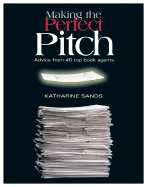The Perils of Pitching
It’s a common activity for writers—pitching. You create ideas for books and pitch literary agents or book editors. Most of the book ideas involve creating a book proposal. Or you pitch magazine ideas to another set of editors. In the case of a magazine, you write a one-page pitch letter called a query.
Over the years, I’ve written for a number of different magazines. Gradually I’ve spent the majority of my time working on longer writing or books. I’ve taken a few magazine assignments but mostly from editors who approach me with an idea. When the editor approaches you, it doesn’t involve any pitching but simply doing what the editor has asked.
This past week, I’ve been working on a project where I returned to some of my older contacts with magazine editors. I’ve been reminded about some of the perils of pitching to dated information. Magazine editors are as mobile as book editors. Many people in publishing seems to move from place to place—not all the time but over the years. While I’ve tried to keep up with the changes in my magazine friends, I know some of the information in my Rolodex is dated and incorrect.
Before I pitched to several places, I made sure I was pitching to the right person. In one case, because I’ve known this editor for many years, I picked up the phone and called him. It’s not something I recommend new writers attempt because in general, you are better communicating through email or regular mail rather than the telephone. Intentionally I had a short conversation and found the name and email of the person to contact. In a matter of minutes, I had the correct person for a pitch to that publication.
For another pitch, I didn’t think I was pitching to the right person—and I said so in my pitch. This editor was gracious enough to pass my pitch on to the right person in their company—and he sent me the name, title and phone number of this person so I could follow up in an appropriate amount of time. In a sense, I made the wrong pitch, but it turned out OK.
Besides reaching the right person, you also need to make sure you spell that person’s name correctly—both the first and the last name. Writers pitch me all the time for my fiction acquisitions editor role at Howard Books. I received another pitch this week wh ere I just shook my head in wonder. This writer sent the email to my correct email address yet began her pitch, “Dear Mr. Whalen”—wrong. From those first words, you’ve set up question marks about the writer. If they can’t spell my name correctly, it casts doubt if they will be able to properly execute whatever they are pitching. Other people will pitch children’s books (which Howard Books doesn’t do according to their guidelines) or a nonfiction book (which I don’t handle since I only handle fiction for Howard books). I hope you see some of these perils in pitching because you want your idea to be fairly considered and receive a decision (hopefully a go-ahead to send the material).
ere I just shook my head in wonder. This writer sent the email to my correct email address yet began her pitch, “Dear Mr. Whalen”—wrong. From those first words, you’ve set up question marks about the writer. If they can’t spell my name correctly, it casts doubt if they will be able to properly execute whatever they are pitching. Other people will pitch children’s books (which Howard Books doesn’t do according to their guidelines) or a nonfiction book (which I don’t handle since I only handle fiction for Howard books). I hope you see some of these perils in pitching because you want your idea to be fairly considered and receive a decision (hopefully a go-ahead to send the material).
Here’s another great tip from Making the Perfect Pitch by Katharine Sands. She writes, “Writing is solitary; publishing is collaborative. The key point to understand: you want to get others excited about what is exciting to you. If you don’t get them to read your work, you are not going to get anything else.”
Will I succeed in my pitches? I have no idea at this time. In many cases, the verdict is still out and I’ve not heard the decision from the editor. None-the-less, I’ve made some solid headway in the process because I’ve been proactively pitching my ideas. If you don’t throw the ball or pitch, then you can’t even get into the game.





















0 Comment:
Post a Comment
That's the writing life...
Back to the home page...